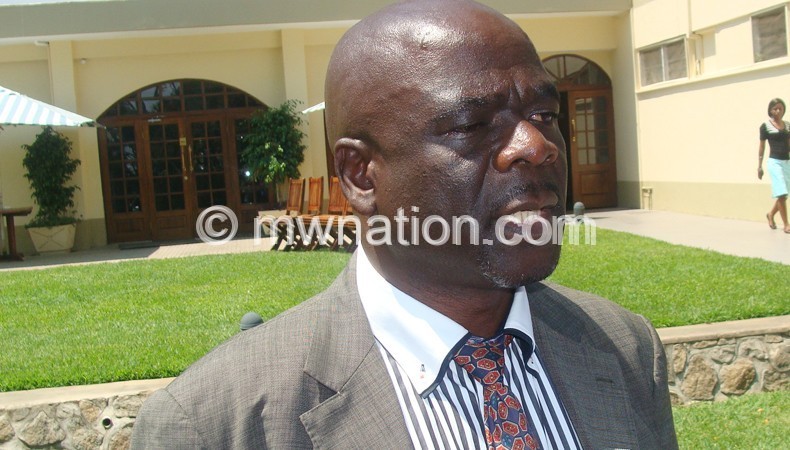Minister hints at new energy sector reforms
Minister of Energy Newton Kambala has unveiled plans to start implementing new reforms to govern the country’s energy sector while bringing the much-needed efficiency.
In an interview on Monday, the minister said government is poised to open the energy sector to private investors, but said that will require new leadership at Electricity Supply Corporation of Malawi (Escom) to facilitate reforms such as new tariff structures that reflect market realities.

“We will also revisit many of the existing contracts and petroleum production sharing agreements in line with the law, ending those that are economically unsustainable and signed under questionable terms during the previous administration,” said Kambala.
On how his ministry plans to deal with the thorny issue of electricity tariffs, he said he will be looking at bringing electricity tariffs down while bringing efficiency in the energy sector.
Said Kambala: “I know of India where electricity tariffs are less than five cents [about K37.50] per kilowatt hour and yet we are paying 12 cents (about K90) per kilowatt hour.
“We want to have tariffs that are affordable and that will help spur economic development.”
In April last year, the Malawi Confederation of Chambers of Commerce and Industry (MCCCI) decried that industries continued to be heavily penalised through ‘exaggerated’ electricity tariff rates, among others.
At the time, the chamber felt that the 2018/22 Escom application for electricity tariff adjustment was unreasonable.
Recently, there has been a raging debate on the need for the country’s power tariffs to be cost-reflective tariff, implying that the tariff paid by the customer should be equal to the cost of supply.
Energy sector experts have argued that delays in implementing the needed tariff adjustments over the past years have jeopardised the country’s efforts to attract more Independent Power Producers (IPPs) in the sector, thereby limiting the country’s ability to expand electricity generation capacity, which is at around 351 megawatts.
Escom and Electricity Generation Company (Egenco) have over the years also failed to agree on some modalities for the power purchase agreement tariffs.
Last month, the Office of the Vice-President moved in to ease Escom’s burden by staggering repayment of K53 billion the parastatal owes key supplier Egenco.
This followed an agreement between Escom and Egenco on the way forward to resolve a dispute relating to arrears.
In a separate interview on Monday, a Mzuzu University-based energy expert Collen Zalengera said Escom has over the years strived to ensure that IPPs are given a tariff that should enable them recover their investment and also a reasonable return.
He said when Escom is passing the cost of maintaining its equipment and distributing power to customers, it is supposed to meet some key performance indicators before being granted a tariff increase by the Malawi Energy Regulatory Authority (Mera).





